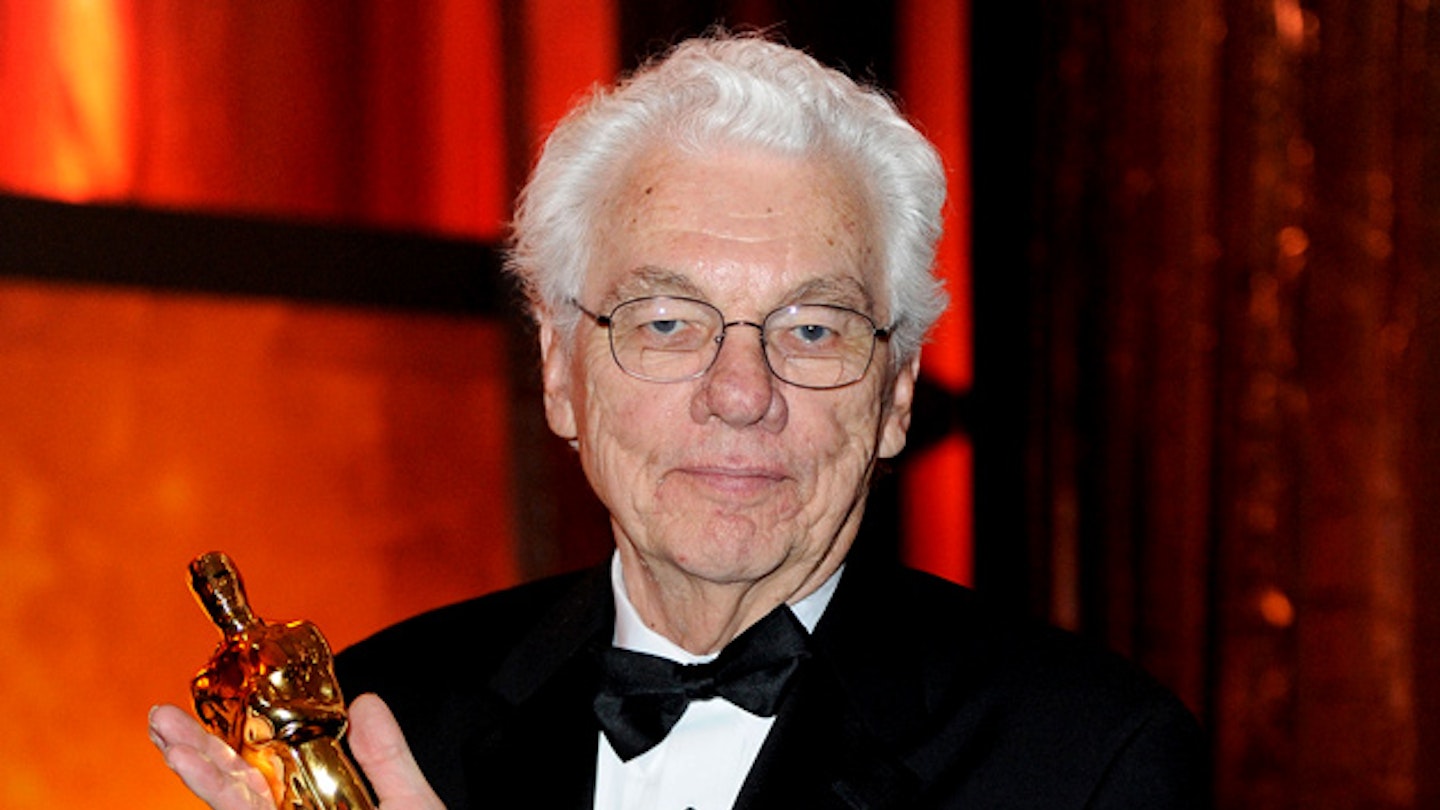Photo: Getty Images
Gordon Willis, the Director of Photography for films including **The Godfather and its sequels, Annie Hall, Manhattan and **one of the most influential cinematographers in history, has died aged 82.
Willis was born in New York, where his father worked as a make-up man for Warner Bros. in Brooklyn. Initially, the movie-loving Willis dreamed of acting, but gradually he became more interested in lighting, stage design and photography. Gofer work gave him an intial grasp of the industry before he was called into the Army during the Korean War. There, he managed to get assigned to the Air Force Photographic and Charting Service, and spent his four-year term learning everything he could about filmmaking.
After leaving the Army, he got a job as an assistant cameraman and worked his way up to first cameraman, through advertisements and documentaries - with the latter in particular affecting his mature style as a DP, where he saw his job as to eliminate, as opposed to adding". This approach earned him the nickname "Prince Of Darkness" from his friend and fellow DP Conrad Hall - something that Willis did not entirely embrace, preferring to term it "visual relativity" and emphasise the changes from light to dark. Screenwriter and director Christopher McQuarrie, tweeting this morning, said that, "No one did more with less," which is a fair summation of Willis' style.
In 1969, Aram Avakian hired Willis to work on End Of The Road, his first film. Within a year he shot Klute for Alan J. Pakula, and went on to define 1970s cinema with a stunning run that included **The Godfather **in 1972, The Godfather: Part 2 in 1974, The Parallax View in 1974, All The President's Men in 1976, Annie Hall in 1977 and Manhattan in 1979.
Willis continued working into the 1980s and 1990s, even trying to direct himself in 1980 with Window****s, a sort of psychosexual thriller starring Talia Shire. However, the experience was not an entirely happy one, with Willis realising that he rather enjoyed having a certain distance from the production.
There were further Woody Allen contributions - Broadway Danny Rose, Stardust Memories, The Purple Rose Of Cairo and Zelig - as well as a reunion with Coppola for The Godfather: Part III and with Pakula on Presumed Innocent and The Devil's Own. The latter was, however, his last film, and Willis retired from a life of standing in the rain waiting for the light / the actors / the director to be ready. He was awarded an honourary Oscar for his lifetime achievement in 2010 - which is some compensation for the fact that he wasn't even nominated during that incredible run of work in the 1970s (he did receive two nominations later, for Zelig and The Godfather: Part III)
“This is a momentous loss,” confirmed ASC President Richard Crudo late Sunday night. “He was one of the giants who absolutely changed the way movies looked. Up until the time of The Godfather 1 and 2, nothing previously shot looked that way. He changed the way films looked and the way people looked at films.”
Below is Willis reflecting on his own work. He will be missed.
